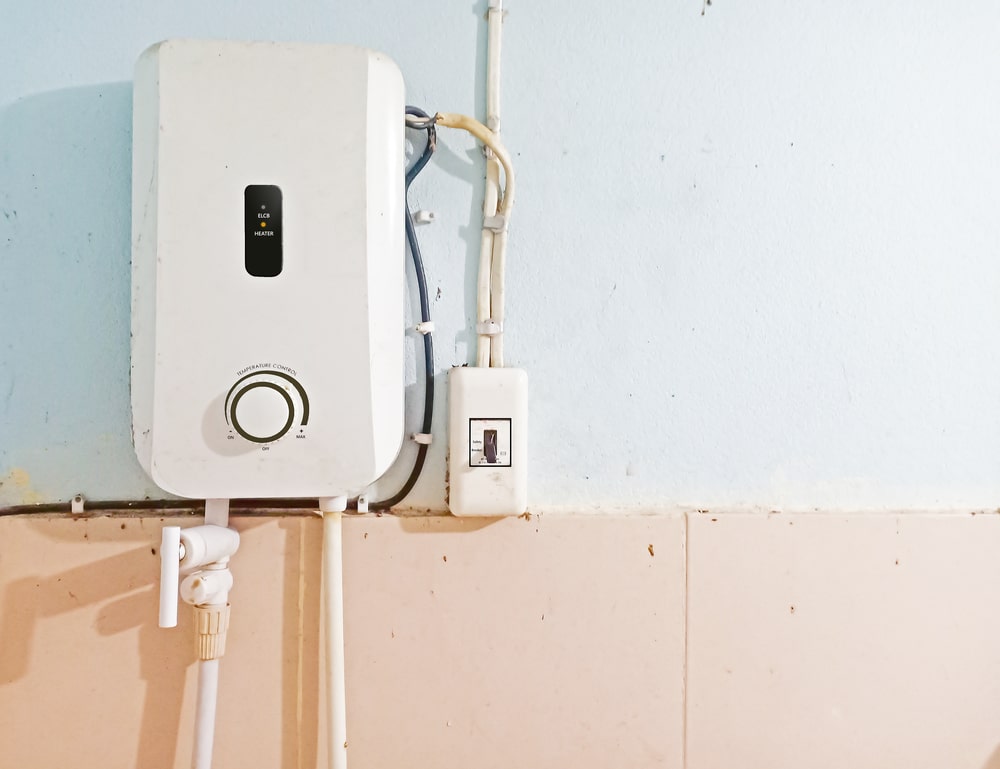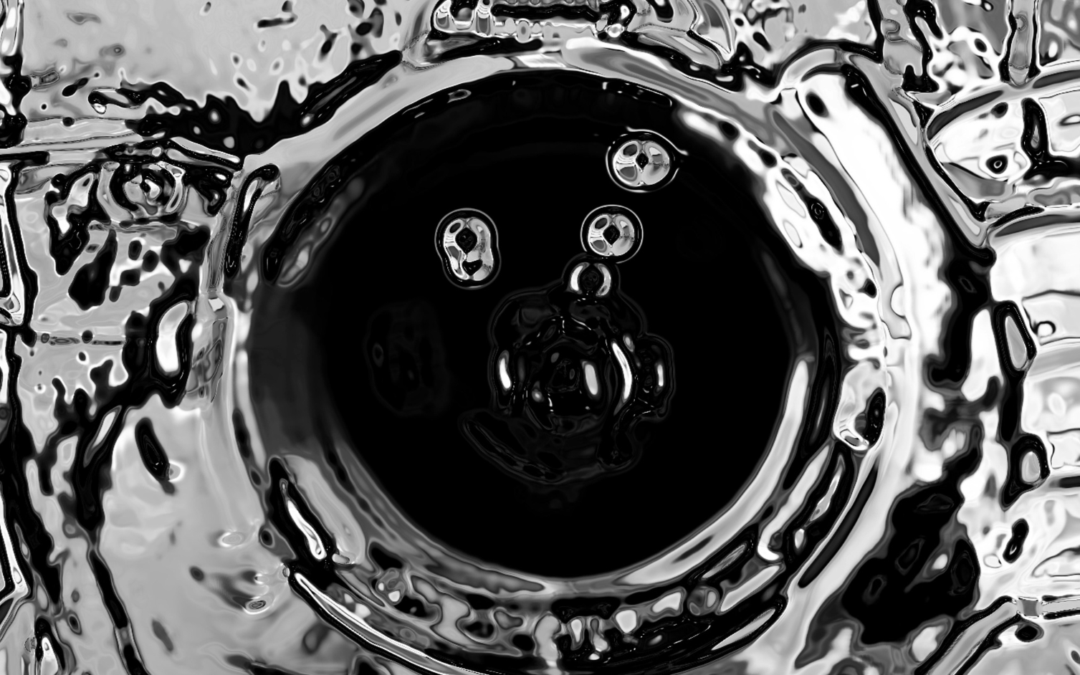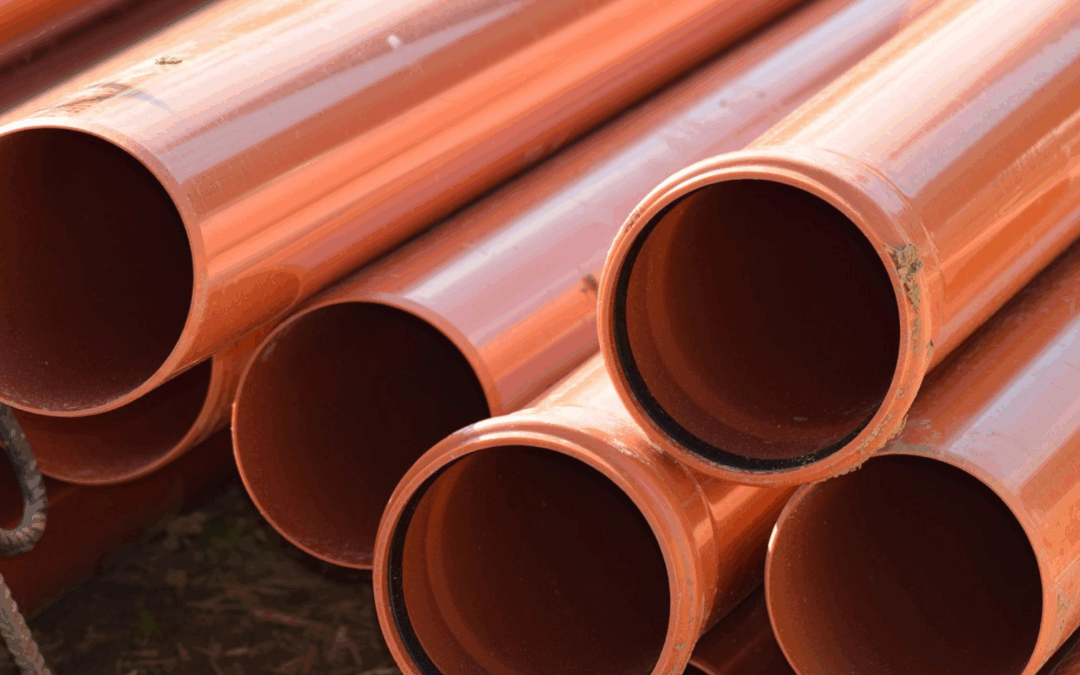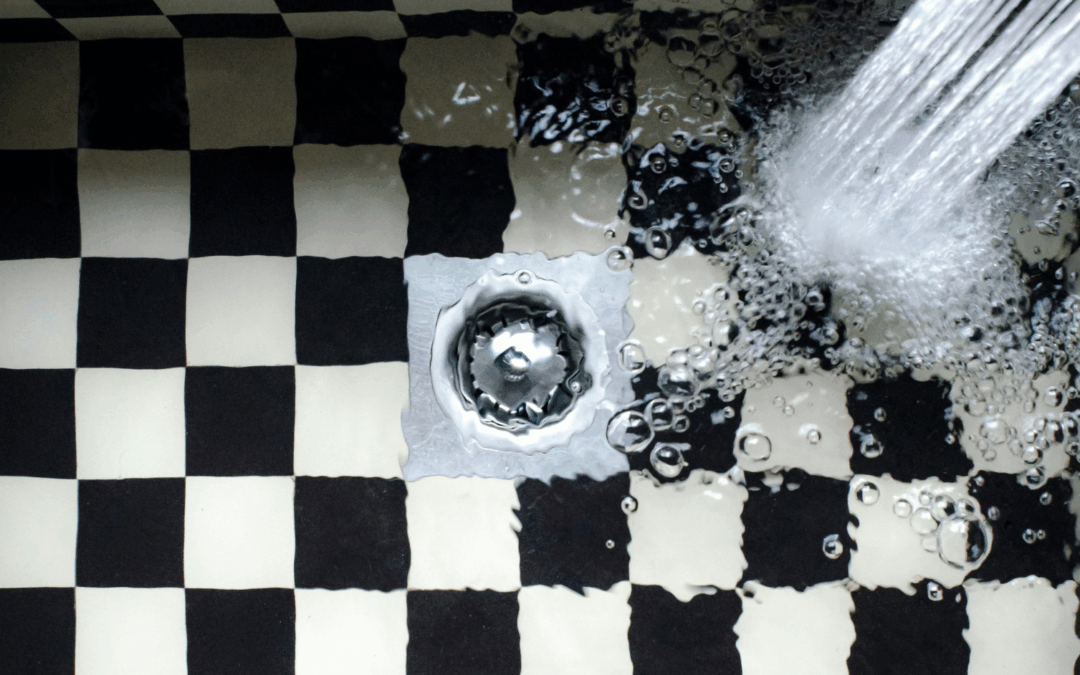Is your hot water heater not working?
Few household inconveniences can rival a hot water heater suddenly refusing to do its job. When your hot morning shower turns into a chilly plunge, fear not – there’s a guide to help you troubleshoot the issue. Whether it’s a mere flick of a switch or a more complex fix, understanding the mechanics can save you time and money.
This post is your step-by-step companion through the common issues that might have your hot water heater playing hooky, with essential safety tips and a clear demarcation of when to call in the professional cavalry.
Schedule Service Online
Get a free estimate so you know what you're signing up for
"*" indicates required fields
For Emergency Services Call: 410-255-9300
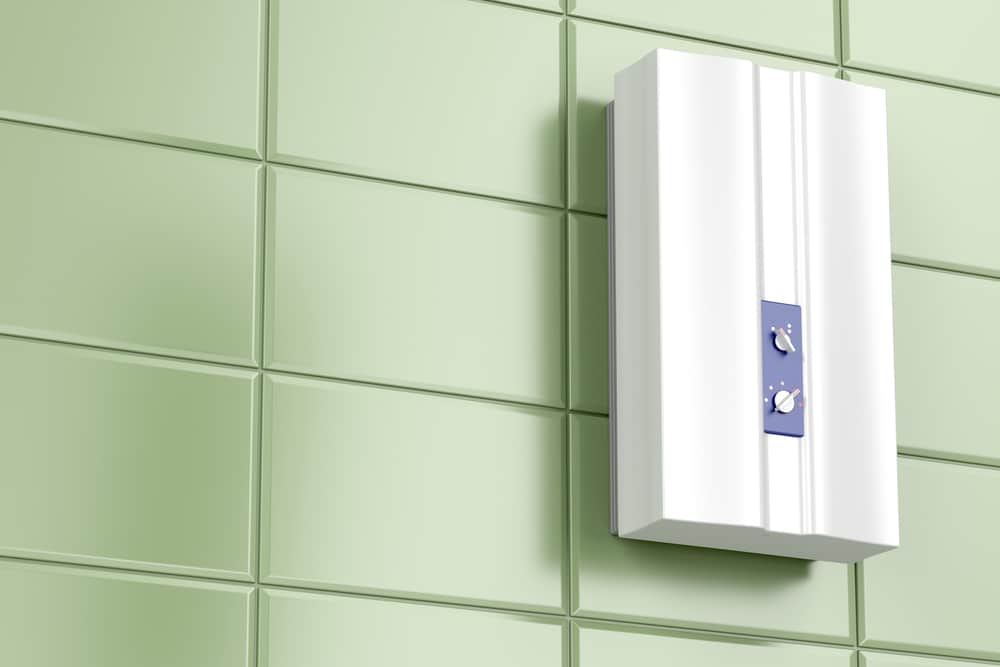
Tankless water heater in the bathroom
What Is a Hot Water Heater?
A hot water heater, a crucial component of home comfort systems, functions by heating water and delivering it throughout your home for various uses such as showers, washing dishes, and doing laundry.
These units can be powered by electricity, natural gas, propane, or even solar energy. They come in two main types: tankless water heaters, which heat water on demand, and storage water heaters, which maintain a reservoir of hot water ready for use.
Understanding the type of hot water heater you have is the first step in troubleshooting any issues, as each type has its unique set of potential problems and solutions.
Types of Hot Water Heaters
Before we dive into the troubleshooting steps, it’s crucial to understand the types of hot water heaters available, as the approach may vary.
- Storage Tank Water Heaters are the most common type, holding a reservoir of hot water to be used on demand. These can be powered by gas, oil, or electricity.
- Tankless Water Heaters, also known as on-demand water heaters, heat water directly without the use of a storage tank. They provide hot water only as it is needed, making them more energy-efficient for some homes.
- Heat Pump Water Heaters move heat from one place to another instead of generating heat directly for providing hot water, which makes them up to three times more energy-efficient than conventional electric resistance water heaters.
- Solar Water Heaters use the sun’s energy to heat water, comprising panels installed on the roof and a storage tank. They are highly efficient in sunny regions.
- Condensing Water Heaters are an option if you heat your home with gas and need a unit with a capacity of more than 55 gallons. They capture exhaust gases that would normally exit the home through the flue, which are instead used to heat the water.
Understanding which type of hot water heater you have can be pivotal in identifying the underlying issues and executing the correct troubleshooting steps.
Gas Water Heaters and Electric Water Heaters | The Differences When They’re Not Working
When troubleshooting your home’s hot water heater, distinguishing between gas heater and electric heater models is crucial because the source of the problem—and consequently the solution—often varies based on the energy source.
With a Gas Water Heater, common issues might include the pilot light going out, a malfunctioning gas valve, or a clogged burner. Symptoms indicating a problem can range from tepid to cold water output, unusual noises, or even a gas smell near the appliance.
Conversely, Electric Water Heaters tend to experience different sets of problems such as tripped circuit breakers, faulty heating elements, or issues with the thermostat. Indications that an electric hot water heater is malfunctioning might include a complete lack of hot water, water that is too hot or too cold, or power supply issues to the unit itself.
For both types of water heaters, it’s essential to regularly check and maintain components to prevent these issues. However, it’s equally important to recognize the different signs of trouble unique to each energy source.
While some fixes can be simple—like reigniting a pilot light or resetting a circuit breaker—others may require professional intervention, especially when dealing with gas lines or electrical connections, to ensure safety and proper functionality.
Hot Water Heater Not Working Properly? Why?
Even if you’re not necessarily a handyperson by nature, knowing a few basic checks can empower you and prevent unnecessary service calls. Issues with hot water heaters usually fall under a handful of categories, including electrical problems, heating component issues, and water supply malfunctions.
These can often be corrected easily once identified. But remember, safety first – the scalding water that usually fills the tank is just one hazard you’ll need to consider.
Common Hot Water Heater Malfunctions
No hot water in the home usually signals one of four issues.
- Water Supply Problems: Sediment buildup can reduce the amount of hot water your tank can dispense.
- Heating Element Malfunction: If one or both of your heating elements fail, you’ll have lukewarm or downright cold water.
- Thermostat Issues: The thermostat might be inaccurately reading the temperature, causing the heater to shut off prematurely.
- Power Source Failure: Whether it’s a tripped circuit, a blown fuse, or a more comprehensive electrical problem, if the water heater isn’t getting power, you won’t get hot water.
Troubleshooting Your Hot Water Heater
Step One: Power Problems
Start with the power source. A malfunctioning hot water heater is often a symptom of a power issue.
To-Do:
- Check the breaker to ensure it isn’t tripped.
- For electric heaters, verify that the unit is plugged in or hardwired correctly.
- Gas heaters should be checked for pilot lights or burner issues.
Safety Note:
- Ensure the area around the water heater is dry to avoid the risk of electric shock.
Step Two: Thermostat Tweaking
The water heater thermostat temperature settings might be incorrect, a simple fix that can restore hot water.
To-Do:
- Locate your thermostat. It’s usually behind an access panel.
- Adjust the temperature to your desired level.
Safety Note:
- Use caution as the thermostat is connected to electrical components.
Step Three: Sniffing Out Sediment Deposit
Over time, sediment can build up, insulating the water from the heating elements.
To-Do:
- Flush the tank to remove any sediment.
- Regular monthly flushing can prevent future issues.
Safety Note:
- Always turn off the power and allow the tank to cool before flushing.
Step Four: Element Examination
Your heating elements could be the culprits if power supply and sediment are not the issues.
To-Do:
- Test the elements with a multimeter to see if they have continuity.
- If one or both fail, it’s time to replace them. This means you have a faulty heating element.
Safety Note:
- Ensure the power is off and the water is cooled before attempting any repairs.
Step Five: Relief Valve Reality Check
A stuck or malfunctioning temperature and pressure (T&P) relief valve can lead to issues.
To-Do:
- Operate the valve manually to check for proper function.
- If it’s leaking, you may have too much pressure in the tank or a problem with the valve that necessitates replacement.
Safety Note:
- Discharge hot water from the valve safely, away from skin or bodily areas.
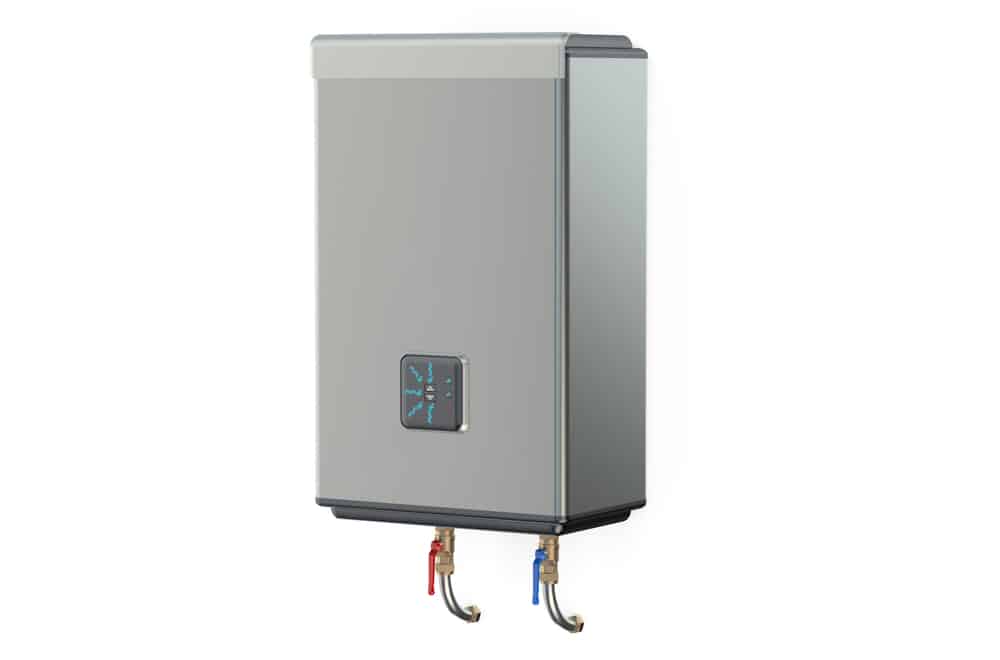
Modern automatic electric boiler, water heater isolated on white background
Safety Precautions
Electrical and hot water-related tasks require extreme caution.
- Turn Off The Power: Do this at the breaker before attempting any check or repair.
- Allow Tank To Cool: Hot water is scalding and dangerous. Never work on a hot tank.
- Dry Surroundings: Moisture and electricity don’t mix. Ensure the area around the heater is dry and stay clear of puddles, especially if you have a leaking water heater.
- Use Tools Properly: Ensure your tools are in good condition and insulated to prevent shocks.
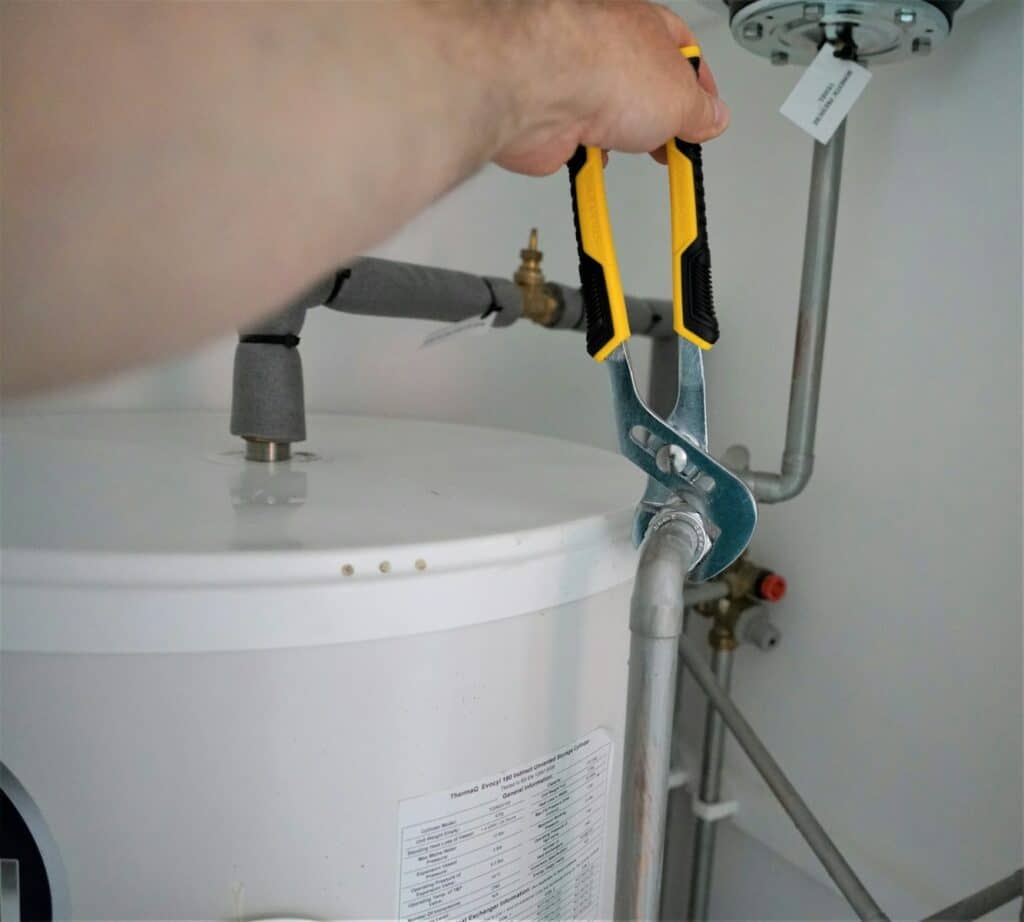
Other Reasons Your Hot Water Heater Might Not Be Working
While the aforementioned troubleshooting steps cover the most common issues with hot water heaters, there are several other reasons why your unit might not be working optimally.
Understanding these can help you pinpoint the problem or communicate more effectively with a professional if needed.
- Gas Supply Issues: For gas heaters, an interrupted or weak gas pressure can hinder the unit’s ability to heat water. Ensure the gas line is open and check for any gas leaks or blockages.
- Detecting a Gas Leak: A gas leak can be not only a reason your water heater isn’t functioning properly but also a significant safety hazard. If you smell gas (often described as a rotten egg smell) near your water heater, it’s vital to act immediately. Do not attempt to light the heater or any appliances, and avoid using any electrical switches which could ignite the gas. Open windows to ventilate the area and leave the house. Contact your gas utility company or a professional plumber equipped to handle gas leaks as soon as possible. Remember, addressing a gas leak is not a DIY task; it requires professional intervention to ensure your safety and the safe operation of your water heater.
- Electrical Wiring Damage: Faulty or aged wiring can disrupt the power flow to an electric water heater, preventing it from operating efficiently. All parts of the water heater elements matter, especially the wiring!
- Water Pressure Fluctuations: Extreme variations in water pressure can affect how your hot water system functions, sometimes causing damage to the unit or its components.
- Internal Tank Corrosion: Over time, the inner tank can corrode, leading to leaks or a failure to properly heat water. This issue often necessitates a tank replacement.
- Venting Problems: Improper venting in gas water heaters can lead to dangerous situations and affect the performance of the heater. Ensure vents are clear and unobstructed.
- Anode Rod Degradation: The anode rod protects the tank from rust. When it wears out, the tank can start to corrode, leading to hot water issues.
- High Water Demand: Exceeding your water heater’s capacity by using multiple hot water appliances simultaneously can result in insufficient or a faulty water heater. Not enough hot water, consider upgrading your water heater tank!
Recognizing these additional factors can offer further insights into hot water heater problems, guiding towards the appropriate corrective actions or the decision to call a professional technician.

When To Call A Pro
While the DIY spirit is admirable, hot water heaters can house some tricky components.
- No Experience? Call A Professional: If any of the troubleshooting seems beyond your comfort level, don’t hesitate to contact a plumber or technician.
- Warning Signs: If you smell gas, hear a loud, unusual noise coming from the heater, or notice steam or abnormal condensation, these could indicate a serious issue. Shut off the gas or electric supply and call a pro immediately.
If your hot water heater failure remain unresolved after attempting the DIY fixes listed, or you encounter any warning signs indicating a more serious problem, it’s crucial to involve a professional. For reliable and expert plumbing services, please don’t hesitate to reach out to us at Maryland Sewer and Plumbing.
With years of experience and a commitment to quality service, our team is equipped to address all your water heater needs, ensuring your system runs smoothly and efficiently. Contact us today to schedule your service and make your hot water tank produce heated water again!
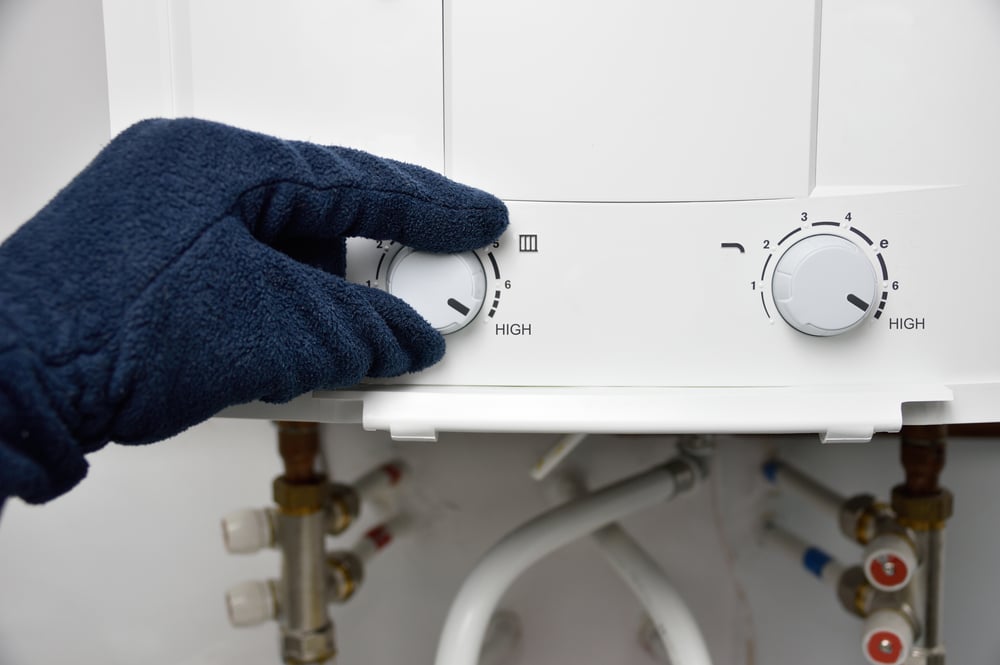
hand rotate temperature adjuster of water heater.High temp
Recap and Maintenance Tips
Remember, maintaining your hot water heater is critical. Regular checks can catch issues before they lead to a full-blown breakdown.
- Monthly Flushing: Keep your tank clear of sediment through a simple flushing process.
- Anode Rod Checks: This element of your heater helps prevent rust and corrosion. Have it inspected annually and replaced as necessary.
- Professional Inspections: Annual service checks by a professional can prevent small problems from growing into large ones.
By following these steps, you can tackle a majority of hot water heater problems that arise in the home. And remember, knowing the basics of your hot water heater’s operation can help you maintain it for years of reliable service.
If you find that the issue goes beyond what you’re comfortable addressing, don’t hesitate to reach out to the experts. Restoring your hot water supply is one DIY triumph away.

